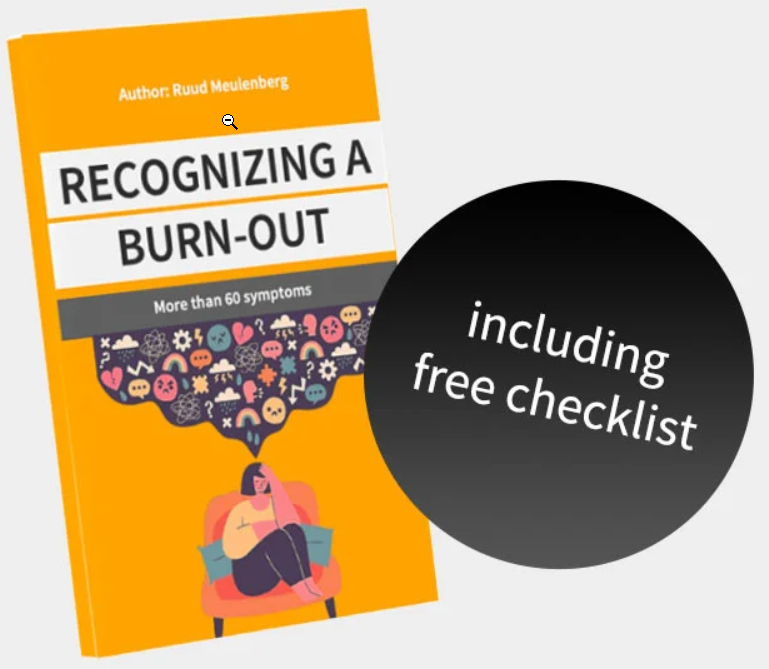Stress is a common occurrence in life. However, when it becomes too much to handle, it can have a negative impact on physical and mental health. One effect on the physical body is that stress can also wreak havoc on our hair and skin, as, when we experience acute or chronic stress, our bodies produce a flood of hormones that can change how our skin and hair look and feel.
How to Tell If Hair and Skin Are Stressed
When under stress, our bodies release cortisol, impacting our appearance, particularly in our hair and skin. Signs of stressed hair and skin include dryness, dullness, breakouts, thinning, or excessive oiliness. Other indicators may be difficulty sleeping and dark circles under the eyes.
Can we help you?
Leave us your information and one of our coaches will contact you in 24H

Causes of Stressed Hair and Skin
When you’re stressed, your body’s instinct is to prepare for a quick getaway, like a flight mode response. In this mode, your body prioritizes sending blood to essential systems, like muscles and vital organs, to help you deal with the threat.
However, this can create some problems, like reduced blood flow to non-essential areas such as your skin and hair. This, in turn, can lead to various issues:
- Hormonal Changes: Stress can trigger thyroid disorders or conditions like Polycystic Ovary Syndrome [1], causing imbalances that lead to hair loss, brittle nails, and dry skin.
- Hair Loss: Stress-induced temporary hair loss, known as Telogen Effluvium, can occur when more hair than usual enters the shedding phase during stressful periods, resulting in thinning or patches of baldness.
- Dryness: Diverted blood flow can cause dry and flaky skin.
- Acne: Stress can worsen acne by increasing inflammation and disrupting hormones that regulate skin oil production.
- Eczema: Stress can trigger or worsen eczema by affecting the skin barrier and increasing inflammation.
How Best to Manage Stressed Hair and Skin
Stresses can harm skin and hair as we have seen. Luckily, there are some easy ways to reduce the stress impact on both hair and skin.
Managing Stressed Hair
- Identify the cause: Gaining insight into the source of your stressed hair, such as hormonal imbalances or an unhealthy diet, is key to managing it successfully. To get the best possible treatment, consult a doctor for a professional diagnosis and treatment plan.
- Treat the scalp: A healthy scalp is essential for maintaining strong and healthy hair. It is essential to use a gentle scrub and regularly massage your scalp. It can help boost circulation and reduce irritation, aiding in healthy hair development.
- Incorporate a healthy diet: Eating a nutritious diet with plenty of vitamins and minerals like biotin and iron can boost your hair’s health. It is essential to maintain the hydration of your scalp and hair by drinking adequate water. Keeping your body hydrated helps to keep your scalp and hair moisturized.

Managing Stressed Skin
- Identify the cause: Understanding the origins of distressed skin, such as anxiety or hormonal fluctuations, is essential in managing it properly. It is good to consult a dermatologist to get an accurate diagnosis and treatment plan.
- Choose the right skincare products: Using harsh skincare products can lead to skin inflammation and discomfort. However, if you choose to use products that are gentle and made of natural ingredients, you can help protect your skin from further damage and keep it looking healthy.
- Practice good skincare habits: Maintaining a good skincare routine can protect the skin from damage and keep it healthy and hydrated. Cleansing and moisturizing regularly are essential habits, such as avoiding activities and products that may lead to skin irritation, such as smoking and harsh skincare products.
How to Stop Hair and Skin Being Stressed
Our hair and skin are often the first casualties of stress, leading to issues like premature aging and lackluster hair. To shield them from stress, consider the following recommendations:
- Sleep Well: Ensure you get sufficient sleep, as it plays a crucial role in overall health, including the well-being of your hair and skin. Inadequate sleep triggers your body’s survival mode, reducing blood flow to the scalp and skin. This can result in dryness, dullness, and an increased risk of wrinkles and aging. Aim for 7-8 hours of sleep each night to provide your skin and hair with the necessary rest.
- Healthy Nutrition: Adopt a nutritious diet that benefits your overall health, including your hair and skin. Incorporate plenty of fruits, vegetables, lean proteins, and healthy fats, providing essential nutrients for their well-being. Avoid processed foods, sugary drinks, and excessive caffeine or alcohol, as these can contribute to dehydration, further stressing your skin and hair. Choosing a balanced diet supports their vitality and appearance.
- Stress Management: Incorporate stress management techniques into your routine. Stress is a significant contributor to skin and hair issues. Practices such as meditation, deep breathing exercises, or engaging in hobbies can help alleviate stress and promote overall well-being. Managing stress not only benefits your mental health but also reflects positively on the health and appearance of your hair and skin.
What Not to do when Hair and Skin is Stressed
If you’re witnessing the impact of stress on your hair and skin, taking proactive measures is crucial to prevent further damage. Here are practices to avoid and a recommendation for maintaining skin and hair health:
- Skincare Consistency: Amidst stress, it’s common to neglect your skincare routine. However, this neglect can exacerbate stress-related skin issues. Ensure you adhere to your daily skincare routine, including cleansing, toning, and moisturizing your face. Consistency in skincare aids in maintaining the health and appearance of your skin.
- Hands-Off Approach: Resist the temptation to pick at your skin; instead, allow it to heal naturally. Picking at pimples or scabs can lead to permanent scarring and worsen existing skin problems. To minimize potential damage, maintain short and rounded nails, reducing the likelihood of causing harm during moments of impulse.
- Opt for Quality: Avoid using harsh products on your hair during stressful times. Stress may induce increased oil production on the scalp, resulting in greasy hair. While it might be tempting to use astringents to counteract greasiness, steer clear of products that strip natural oils from the hair. Instead, opt for hair care products that are gentle on the scalp, preventing excess oil production, breakage, or damage. Choose a mild shampoo and conditioner tailored to your hair type, avoiding those that excessively remove natural oils.
- Change in Routine: Consider introducing changes in your daily routine to manage stress more effectively. Incorporate stress-relieving activities such as meditation, exercise, or engaging in hobbies. Changing your routine step by step can have a positive impact on both your mental well-being and the health of your skin and hair.
Top 5 Tips to Improve Quality of Hair and Skin
Here are 5 top tips that will have your skin glowing and hair gleaming in no time.
- Eat a Healthy Diet: Eating a lot of fruits, vegetables, and lean protein helps keep skin and hair looking their best. Avoiding processed foods, sugary snacks and excessive amounts of alcohol can also help improve complexions and maintain luscious locks.
- De-stress: Chronic stress can wreak havoc on your hair and skin. Try to find ways to reduce feelings of pressure (before they happen) and de-stress daily with appropriate self-care practices. such as yoga or meditation. Managing stress with self-care has the greater benefit of minimising the propensity to suffering burnout.
- Exercise Regularly: Exercise increases blood circulation, which helps to deliver nutrients to the skin and hair follicles. It also helps reduce burnout, which can harm hair and skin health.
- Hydration Matters: Ensure you stay adequately hydrated for radiant skin and healthy hair. Water plays a vital role in maintaining skin elasticity and preventing dryness. Proper hydration also aids in delivering essential nutrients to the hair follicles, promoting overall hair health. Make a habit of drinking enough water throughout the day to support the hydration needs of your skin and hair, contributing to their natural glow and vitality.
- Sleep Well: A good night’s sleep is crucial for both hair and skin health. Practice good sleep hygiene: no screens before bed, a dark sleeping environment, cool temperature and so on will all help with hair and skin condition.
Where Can I Get Help with Managing Stress
A lot of people need help managing the pressures of contemporary life. Fortunately, there are a few resources available to assist you in controlling pressure levels.
Professional Help
Seek help from a therapist, counsellor, or a specialized stress coach. Talking to someone who understands what you’re going through can be extremely helpful. A therapist can help you develop healthy surviving mechanisms and work through any underlying issues contributing to your pressure.
Online Resources
There are also many helpful books and online resources available on distress. Reading about coping strategies can give you some good ideas about what might work for you.

Download our
free e-book
Recognizing a burnout
(more than 60 symptoms)
Apps
Relaxation and meditation apps can help manage strain. Experimenting with different tools and resources until you find something that works for you is important.
Caring for your hair and skin can be challenging when dealing with stress. Taking the necessary steps to distress can help reduce the effects of strain on your hair and skin. Make sure to practice self-care and keep your pressure levels in check to ensure your hair and skin stay healthy.
Conclusion: Taking Care of You
Life can be a bit like a song, and stress is like a loud note in that song. It doesn’t just affect how we feel inside; it also shows on our skin and hair. Think of a mirror – it shows more than just how we look; it tells a story of stress and how we take care of ourselves. Understanding what our skin and hair tell us, making small positive changes, and caring for ourselves can make a big difference. It’s like creating a beautiful melody of well-being. So, let’s face the mirror with a smile, knowing that we’re taking steps to feel good inside and out.
Stress & burnout coaching; for 100% recovery!
Reducing stress and recovering from burnout is simply incredibly difficult. The coaches at Meulenberg Training & Coaching understand exactly what you are going through and know how tough it can be. They have often experienced it themselves! With their years of experience and expertise, they are ready to help you step by step toward a full recovery. The results of our one-on-one coaching and absenteeism training will benefit you for a lifetime!
FAQ
References
- https://www.hopkinsmedicine.org – Polycystic Ovary Syndrome (PCOS) – found on 15/04/2024
Link to a page on hopkinsmedicine.org






